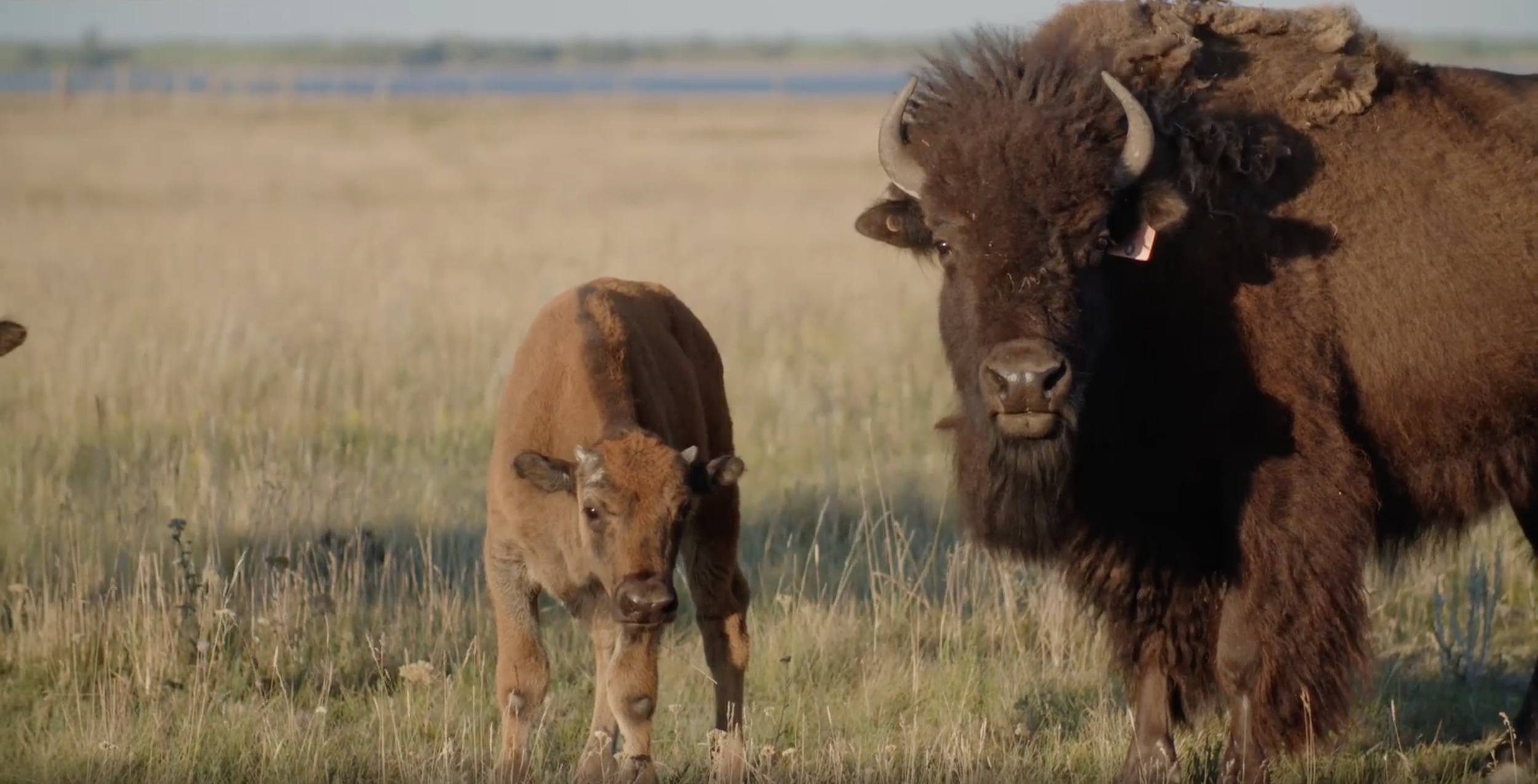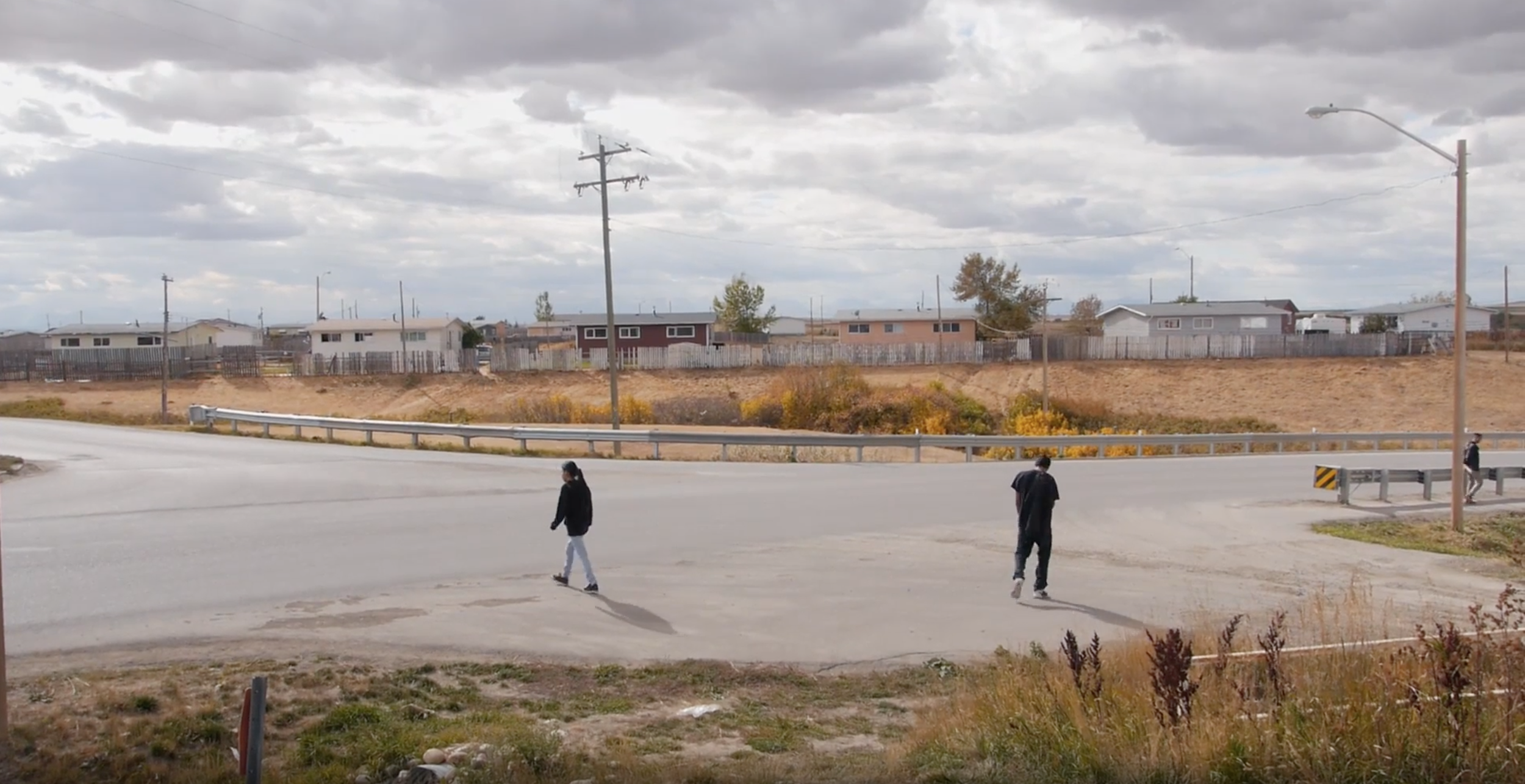
Press Kit
Kímmapiiyipitssini: The Meaning of Empathy
Elle-Máijá Tailfeathers
2021 | 124 min 50 s
Original version in English and Blackfoot with English subtitles
Kímmapiiyipitssini (Blackfoot)
GEE-maa-bee-bit-sin — giving kindness to each other.
Elle–Máijá Tailfeathers’ film witnesses radical and profound change in her community. Kímmapiiyipitssini: The Meaning of Empathy is an intimate portrait of survival, love and the collective work of healing in the Kainai First Nation in Southern Alberta, a Blackfoot community facing the impacts of substance use and a drug-poisoning epidemic.
Community members active in addiction and recovery, first responders and medical professionals implement harm reduction to save lives. This work is contextualized within the historical and contemporary impacts of settler colonialism; Kímmapiiyipitssini: The Meaning of Empathy draws a connecting line between the effects of colonial violence on Blackfoot land and people and the ongoing substance-use crisis.
Held in love and hope for the future, Kímmapiiyipitssini: The Meaning of Empathy asks the audience to be a part of this remarkable change with the community.
Trailer
FILMMAKER'S STATEMENT
Elle-Máijá Tailfeathers – February 16, 2021
In 2020, fentanyl claimed more than 2,000 lives in British Columbia and Alberta, the provinces hardest hit by the drug-poisoning crisis. A disproportionate number of those lives lost to drug poisoning were Indigenous. Each and every one of them had a story and legitimate reasons for developing addictions. They were human beings with hopes, dreams and aspirations. They had people who loved them, and their deaths were preventable. That is certain. Their deaths make it impossible to ignore the gaping wound left by the ongoing impacts of settler-colonialism.
For decades, Indigenous communities have accepted that abstinence-based treatment models, such as 12-step programs, are the golden standard for treating addiction. However, the drug-poisoning crisis has revealed that abstinence isn’t a realistic, or even a humane, expectation for those addicted to substances like fentanyl. As the death toll continues to rise, many Indigenous communities have been forced to question our longstanding relationship with the abstinence-based model. Despite the fact that evidence-based studies prove that harm reduction saves lives, many communities were not and still are not willing to adopt harm-reduction practices.
Seven years ago, my community of Kainai found itself on the frontlines of this crisis. Our community leaders and addictions specialists turned to the conventional abstinence-based treatment models and very quickly learned that the abstinence model was not effective in saving lives. Every week, we lost loved ones and grief permeated every aspect of our lives. Somewhat reluctantly, those on the frontlines began to implement radical alternatives rooted in harm reduction and witnessed a dramatic shift within the community.
Kimmapiiyipitssini is a Blackfoot teaching that reminds us that practising empathy and compassion is how we survive as a people. It is how our ancestors survived genocide and it is how we, as a community, will survive this crisis. Kimmapiiyipitssini is our harm reduction. As a filmmaker and a community member, I felt an urgency and a responsibility to document these radical changes and also honour the lives of those lost to this crisis. I am immensely proud of Kainai and everyone who is contributing to this monumental effort to save lives.
Kímmapiiyipitssini: The Meaning of Empathy is a tribute to my community, lovingly crafted with great care and respect for who we are and who we have always been.
Synopses
-
Witness the work of community members with substance-use disorder, first responders, and health professionals in the Kainai First Nation as they bring hope and change through harm reduction to Blackfoot people.
-
Follow filmmaker Elle-Máijá Tailfeathers as she creates an intimate portrait of her community and the impacts of the substance use and overdose epidemic. Witness the change brought by community members with substance-use disorder, first responders and medical professionals as they strive for harm reduction in the Kainai First Nation.
-
A portrait of a community facing radical change, Kímmapiiyipitssini: The Meaning of Empathy brings humanity and compassion to the substance-use crisis and drug-poisoning epidemic on the Kainai First Nation in southern Alberta. Filmmaker Elle-Máijá Tailfeathers welcomes viewers to witness the collective work of her community.
Surrounded by tall prairie grass gently swaying in the wind stands Elle-Máijá’s mother, Dr. Esther Tailfeathers, a family doctor and community harm-reduction advocate who teaches that, “Kimmapiiyipitssini means compassion… in our way of believing, if you help people out then you are blessed to continue to do that, and so our People are supposed to give what they have or what they can to help.” Kimmapiiyipitssini is at the heart of the harm-reduction strategy in this Blackfoot community.
Lori speaks to her experience with substance-use disorder through gentle storytelling and laughter. She is a mother and an aunty, and is currently in recovery. Lori explains that opioid agonist therapy, which manages opioid addiction with a prescribed alternative, has been essential to her recovery journey. A short distance away, in a small room at the Moses Lake Shelter, Elle-Máijá shows community members with alcohol-use disorder a video about the Managed Alcohol Program in the Downtown Eastside neighbourhood of Vancouver, BC. The program provides controlled access to alcohol and a safe consumption site. After the video, George tells Elle-Máijá, “If it works, we won’t hurt ourselves, drinking that bad stuff.” The sale of alcohol is prohibited in Kainai, which leaves some with alcohol-use disorder no choice but to consume dangerous alternatives.
Contextualized in the historical and lived trauma of settler colonialism, Kímmapiiyipitssini: The Meaning of Empathy draws a connecting line between the impacts of colonialism on Blackfoot land and people and the ongoing substance-use crisis. By questioning abstinence-only treatment, and showing the lives saved through harm-reduction models, the film asks the audience to be a part of the radical change to which the community is committed.
This need for change is felt in neighbouring city Lethbridge. In a parking lot on a brisk evening, Mark Brave Rock, founder of the SAGE Clan, leads volunteer members in prayer before they start their routine. The group patrols the streets of Lethbridge in order to provide safe drug-rig clean-up, and helps ensure the safety of street-involved vulnerable peoples. The city can be a volatile place for Indigenous peoples.
People with a substance-use disorder, both in active use and in recovery, come together with frontline workers to issue an urgent call to action: change is a matter of life or death for many people. Set among the smooth curves of the foothills of southern Alberta, Kímmapiiyipitssini: The Meaning of Empathy holds these stories in love and hope for the future.
Stills















Press Relations
Katja De Bock
NFB Publicist – Vancouver
C.: 778-628-4890
k.debock@nfb.ca | @NFB_Katja